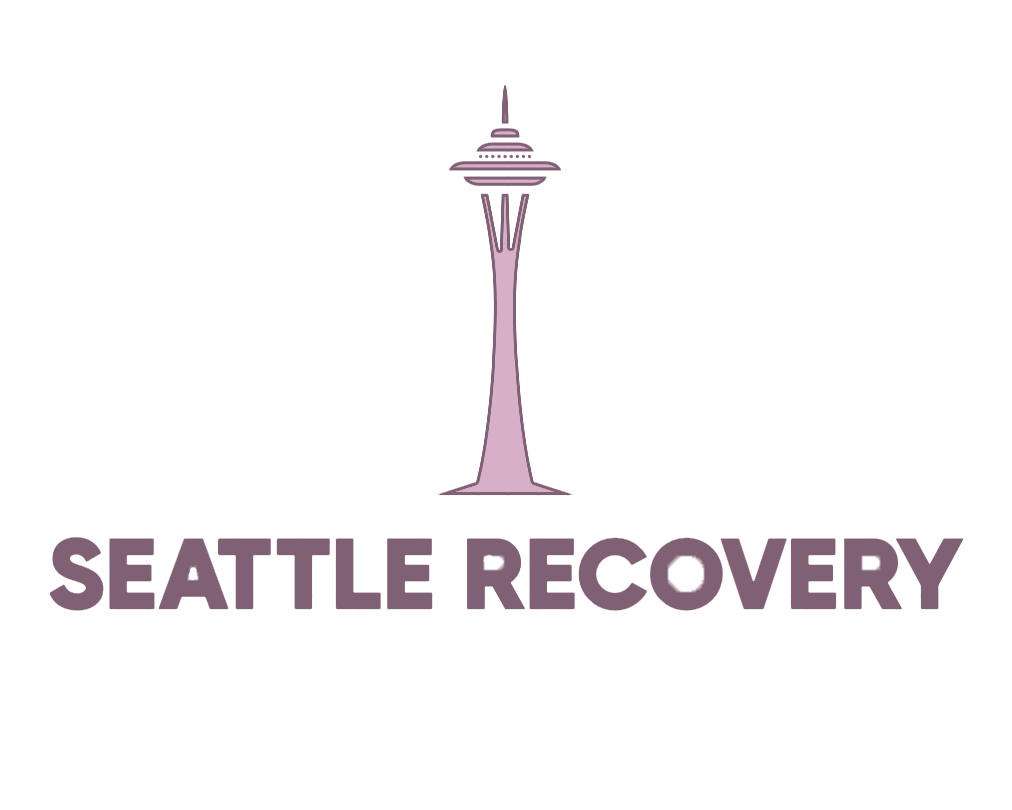Accredited Dual Diagnosis Outpatient Treatment in Washington

What is Failure to Launch Disorder?
Failure to Launch Disorder describes the struggles some young adults face when trying to transition into independent adulthood. These individuals may have difficulty finding direction, securing employment, or handling responsibilities like living on their own or managing finances. As a result, they often continue to rely on their parents or caregivers for support, sometimes well into adulthood, which can create tension within the family and delay personal development.
This lack of progress toward independence can result in feelings of inadequacy, anxiety, and depression for the individual. The inability to achieve goals or take on adult responsibilities may exacerbate mental health challenges, making it even harder to move forward. This can create a cycle of dependency, where both the young adult and their family members struggle to find a path toward greater autonomy and well-being.
Getting Treatment for Failure to Launch Disorder in Bellevue
Failure to launch disorder can prevent young adults from achieving independence and pursuing their goals. At Seattle Recovery in Bellevue, we offer treatment programs designed to help individuals overcome the challenges of failure to launch. Our approach includes therapy, life skills training, and support aimed at helping clients build the confidence and resilience needed to take control of their lives.
In Bellevue, our treatment program focuses on helping individuals develop the skills and mindset needed to transition into adulthood. We provide a supportive environment where clients can work on building a strong foundation for future success and independence.
Our Addiction Treatment Programs
We only use proven clinical services to treat our patients, ensuring the highest level of care and success rates. Our team consists of highly trained therapists and doctors who specialize in a variety of mental health and addiction issues.
Clinical Services We Use for Treatment
Our clinical services at Seattle Recovery offer comprehensive support to guide individuals through their recovery journey. Our experienced team delivers tailored treatment plans to promote healing and long-term success.
Cognitive Behavioral Therapy (CBT)
Cognitive Behavioral Therapy (CBT) at Seattle Recovery offers a transformative approach to mental health, focusing on identifying and challenging negative thought patterns.
Dialectical Behavioral Therapy (DBT)
Dialectical Behavioral Therapy (DBT) at Seattle Recovery focuses on providing clients with new skills to manage painful emotions and decrease conflict in relationships.

Educational Groups
At Seattle Recovery, Educational Groups are a cornerstone of our healing process. They offer participants the chance to learn about addiction, mental health, and coping strategies in a supportive environment.

Experiential Therapy
Experiential Therapy at Seattle Recovery offers a transformative approach to healing. Through activities like role-playing, guided imagery, and outdoor adventures, clients engage deeply with their emotions and experiences.
Eye Movement Desensitization and Reprocessing (EMDR)
EMDR at Seattle Recovery offers a groundbreaking approach to healing. This therapy is designed to help individuals process and overcome trauma.

Family Support
We know the path to sobriety involves the support of loved ones. Our Family Support program offers comprehensive care to foster understanding, healing, and growth for both individuals and their families.

Group Therapy
Group therapy at provides a supportive space for sharing, learning, and developing coping strategies with guidance from experienced therapists. This collaborative approach promotes healing and builds a network for long-term recovery.

Individual Therapy
Seattle Recovery’s Individual Therapy offers personalized, one-on-one support in a safe, confidential setting. Clients explore their feelings and thoughts, gaining insight and developing coping strategies for growth and healing.

Intervention Assistance
We understand the complexities of addiction and the courage it takes to seek help. Our Intervention Assistance program is designed to guide families through the delicate process of encouraging a loved one to accept treatment.

Medication Management
Medication management is personalized to support each individual's recovery journey. Our healthcare team ensures safe, effective medication use with a blend of compassion and expertise, adapting treatment to meet each person’s unique needs.

Motivational Interviewing
Motivational Interviewing at Seattle Recovery offers a compassionate and empowering approach to change. It’s about understanding your unique journey, exploring your own motivations, and embracing change at your pace.

Relapse Prevention
Relapse Prevention creates a supportive environment to help individuals navigate recovery with confidence. Through personalized strategies, coping mechanisms, and community support, we equip clients with tools for long-term sobriety.
Affordable Insurance Accepted Care Services
We Work With Most Major Insurance Providers
Our goal is to provide affordable and effective treatment for all individuals seeking help at our facility. We understand that addiction and mental health struggles can be challenging enough without worrying about finances. That's why we are committed to working with your insurance company to make sure you receive the maximum coverage available for your treatment.
FAQ
We've compiled a list of frequently asked questions to provide clarity on the experience and alleviate any remaining fears or anxieties you might have.
A typical day in addiction rehab involves a structured and supportive environment aimed at promoting physical, mental, and emotional healing. Residents typically wake up early for a healthy breakfast before starting their daily schedule of therapy sessions, group activities, and workshops that address the root causes of their addiction. These may include individual counseling, group therapy, family therapy, exercise classes, educational lectures, and recreational activities. The day is also filled with nutritious meals, breaks for reflection and relaxation, and time for personal reflection through journaling or meditation. In the evening, there may be peer support meetings or 12-step programs to participate in before turning in for the night. Each day at our facilities is carefully planned to provide a well-rounded approach to recovery and help individuals establish healthy habits and coping mechanisms.
Typically, a detox period lasts around five days, though it can span from three to 10 days. The duration of detox is individualized, influenced by factors like the substances used, amounts consumed, duration of use, frequency, and method of administration. These factors collectively determine the necessary length of stay for you or your loved one.
Upon entering addiction treatment, there are certain items that are allowed and encouraged to bring for your comfort and well-being. These may include comfortable and appropriate clothing, personal hygiene products, prescription medications (with proper documentation), and journals or books for personal reflection. However, there are also items that are not allowed in addiction treatment facilities. These typically include any substances, such as drugs or alcohol, as well as weapons and anything that may be considered a distraction from the recovery process. Checking with the facility we've chosen in advance for a detailed list of permitted and banned items is crucial to ensure a seamless transition into treatment.
With Drug Abuse and Addiction, we understand that addiction is often closely tied to mental health issues. That's why our centers for drug abuse and addiction also prioritize addressing underlying mental health concerns. Our team of professionals is equipped to provide support and treatment for a variety of mental health disorders, such as depression, anxiety, PTSD, and more. We believe in a holistic approach to recovery, and this includes addressing both physical and mental health needs. Our admissions team is dedicated to finding the right facility that can offer comprehensive care for all your needs, ensuring a successful recovery journey. We are here to support you every step of the way towards lasting sobriety and improved mental well-being.
Our admissions team at Drug Abuse and Addiction is dedicated to helping you discover the ideal treatment center for your requirements. Selecting a rehab center can be daunting, which is why our team is here. We are committed to assisting you in navigating the process and locating the perfect center for you or your loved one. Comprised of caring and knowledgeable professionals, our admissions team comprehends the intricacies of addiction and the significance of selecting the appropriate treatment. We consider your unique needs, preferences, and any co-occurring conditions to match you with a facility that provides tailored care. You do not have to face this alone – our admissions team is committed to aiding you at every stage toward a successful recovery.
Watching a loved one struggle with addiction can be heartbreaking and overwhelming. You may feel helpless and unsure of how to help them. The first step towards getting your loved one the help they need is to have an open and honest conversation with them about their addiction. Express your concern and offer your support, but also set boundaries and encourage them to seek professional help. It may also be helpful to research treatment options with our team and have resources readily available for your loved one.
Remember to remain patient, understanding, and supportive throughout this process – recovery is a journey and it will take time. With the right approach and support, you can help your loved one find the path to a healthier and happier life free from addiction. So don't hesitate to reach out for guidance and support from our team at Drug Abuse and Addiction. We are here to help you and your loved one every step of the way towards recovery.
No matter how dedicated you are to your recovery journey or how determined you are to maintain sobriety for life, there's a possibility of relapse at some stage. Statistics from the National Institute on Drug Abuse indicate relapse rates during recovery range from 40% to 60%. Post-relapse, it's common to feel shame or remorse. You might even contemplate surrendering to addiction rather than persevering to combat the urge to use. While these feelings are normal, they can pose obstacles to achieving a drug-free life. Instead, view a relapse as a learning opportunity; refine your relapse prevention strategy and identify triggers. By delving into the underlying reasons for the relapse, you'll establish a foundation for a recovery that ensures you come back even stronger.
The initial step involves assessing whether revisiting rehab is necessary. If it was an isolated occurrence and you're dedicated to evaluating or adjusting your recovery plan, returning to an inpatient facility may not be essential. This setting provides the patient with hands-on care and ongoing monitoring. However, falling back into a persistent pattern of substance misuse may indicate the need for reentry into a structured treatment regimen. If conversations about substance use arise, socializing with individuals who encourage drinking, or using substances as a coping mechanism resurface, it signals a more significant issue requiring prompt intervention.
Upon reentering treatment post-relapse, the primary focus should be on reintegrating into daily life. Opting for a sober living environment for a few months post-treatment could be the most effective means to prevent relapse, as accountability and structure aid during the initial vulnerable phase. Additionally, having an outpatient therapy plan in place for ongoing support post-rehab is beneficial.

Verify Your Insurance With Us
Freeing yourself from Addiction doesn't have to be hard. Take the first Step and begin filling out the form, it's the initial phase in achieving a healthy recovery. We offer the necessary guidance and professional care crucial during the early treatment stages.

















